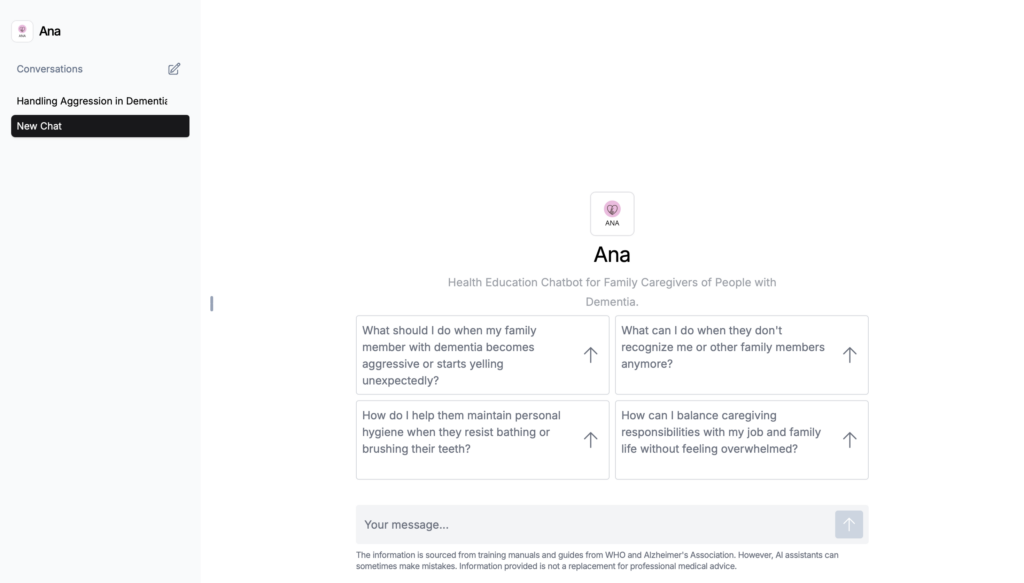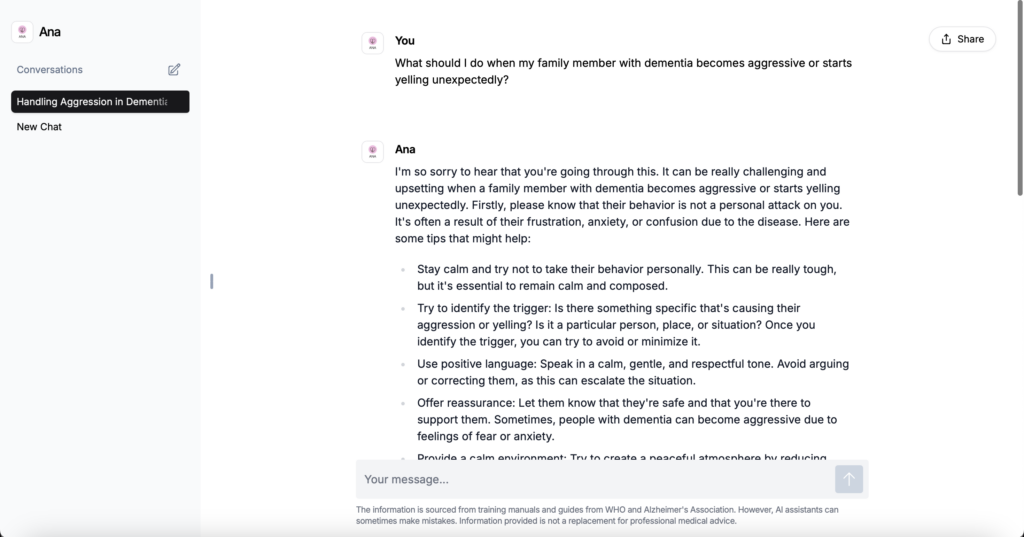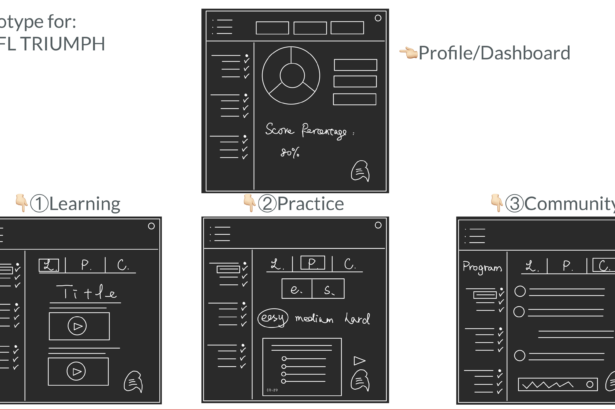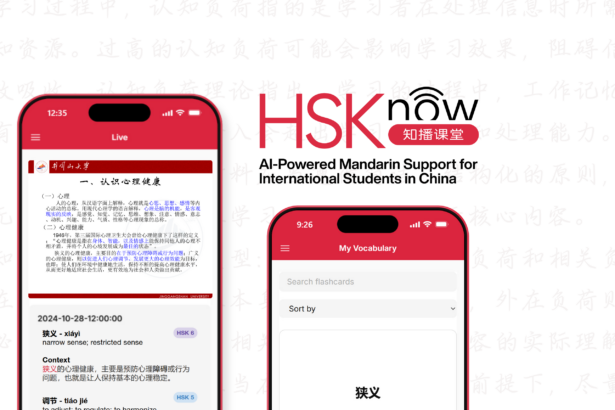My project is a health education chatbot created to support family caregivers of individuals with dementia. For more than a decade, my family and I cared for my great-grandmother, experiencing firsthand the deep challenges that come with dementia care—its unpredictability, the different ways it manifests, and the relentless demands it places on caregivers. Finding relevant, trustworthy health information was another struggle; while there was an abundance of resources, they often didn’t fit our specific needs, and ensuring the reliability of the information was challenging. Sometimes, accessing caregiving-related health education felt as overwhelming as the caregiving itself. As I spoke to others, I realized we weren’t alone—many family caregivers faced the same struggles. This shared experience inspired me to create something that could truly help.
Ana, the chatbot, offers caregivers a personalized and empathetic learning experience tailored to their unique and often critical learning needs. By providing instant, reliable, and context-specific information, Ana eliminates the need for caregivers to spend hours searching for reliable and relevant information online—often a time-consuming and overwhelming task. Instead, they can rely on a trusted, conversational AI trained with verified content from reputable sources like the World Health Organization and the Alzheimer’s Association.
Ana is not only informative but also designed to be interactive, engaging users in a way that feels supportive. To achieve this, I prioritized training the AI with guidelines that emphasize empathy, kindness, and the importance of human-like, conversational interactions. Ana actively seeks to understand each user’s specific situation, asking clarifying questions, offering examples, and citing sources to maintain credibility and transparency.

Users have shared that Ana provides empathetic responses, creating a supportive environment that feels understanding and human. It not only answers queries accurately but also asks questions that help users clarify and refine their own prompts. This back-and-forth enables caregivers to receive more specific, targeted information tailored to their unique situations. By facilitating access to timely, reliable information, Ana empowers caregivers to make informed decisions more quickly and easily. Importantly, it supports them in prioritizing their own well-being as they face the complex and often overwhelming challenges of caring for a loved one with dementia.
Developing this solution has deepened my understanding of learning design, especially in health education and support contexts. I learned that an effective learning experience isn’t just about delivering information but about “meeting learners where they are”—recognizing their needs, emotions, and environment. By focusing on empathy, accessibility, and personalization, this project also highlights the potential of innovative learning technology to bridge significant knowledge gaps and to provide meaningful, real-time support to those who need it most. The project reaffirmed my belief that well-designed learning experiences are as much about how we communicate knowledge as they are about the knowledge itself, especially for audiences facing unique emotional and practical challenges.

Annanya Panagala is a grad student in the Learning Design, Innovation, and Technology (LDIT) program at the Harvard Graduate School of Education, Class of 2025. Ana was created as an academic project over LDIT’s Program Core Experience. To contact Annanya, reach out via email (annanya3p@gmail.com) or LinkedIn (www.linkedin.com/in/annanya-panagala-68a533161)



